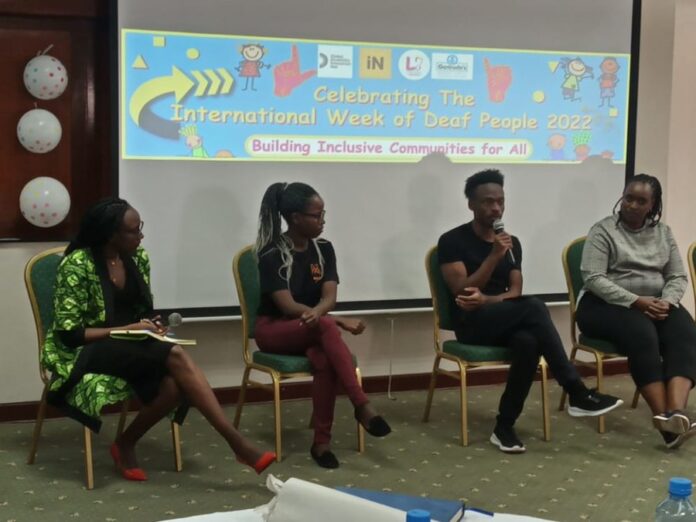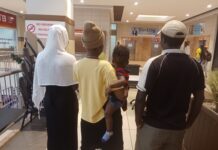By Henry Owino
Nairobi, Kenya: Parents with deaf children in Kenya want the Ministry of Education in collaboration with the Ministry of Public Service to ensure efficient public service delivery to all deaf persons.
The parents are therefore urging the Kenya Government through the relevant Ministry under State Department for Social Protection, Senior Citizens Affairs, and Special Programmes to look into their plight.
In this regard parents of Deaf children are concerned with high levels of discrimination. Time to employ sign language interpreters.
To start with, the number of public schools in Kenya offering education to children with special needs such as the deaf are inaccessible. The population of deaf children has increased so should the number of such special schools rise. A few available are far-flung and overcrowded with less specialized skilled teachers.
The parents complain that a number of regular classrooms are continuing to be built for the new CBC curriculum with teachers trained yet sign language is ignored. Parents want pre-primary schools to be considered for sign language education to cater to deaf children. This should go up to the university level.
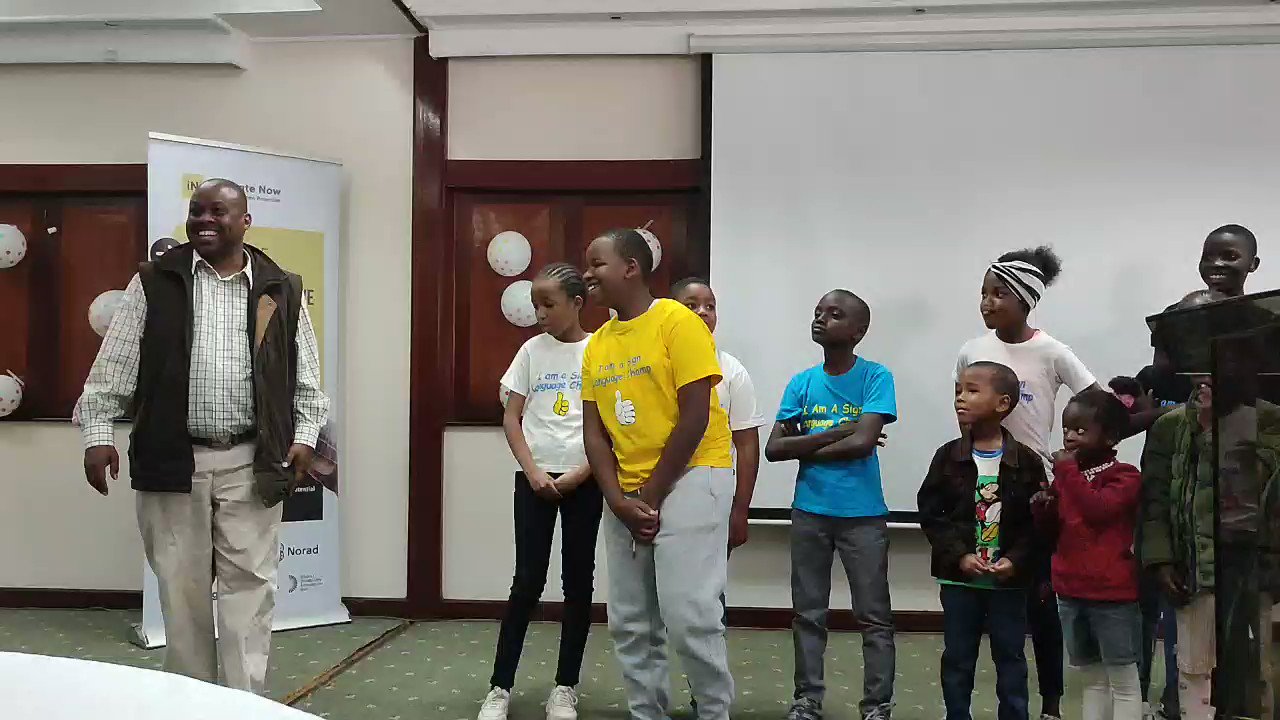
Vyonne Busolo is a young parent of a deaf girl, aged 5 in pre-primary 1 in a certain school. It was difficult for her as a parent to communicate and find a school where her deaf daughter could join for basic sign language and education as a right.
Busolo says schools offering specialized education for persons with a disability such as the deaf, in Kenya are extremely few. For a fact, she added the schools are barely countable and most enrolments start in lower primary onwards.
“I was more stressed about finding a pre-primary school for my daughter to join than I was worried when I realized her hearing problem. This is because the only school that I knew offering specialized education for the deaf is in Vihiga County. Unfortunately, my daughter is so young to be away from me hence joined regular for now,” Busolo recalls her frustrations.
“Lugha Ishara Organization has been of help to me with its programs. So, nowadays her daughter can use sign language to communicate, learn, and sing, and myself have learned the sign language too,” she says delightfully.
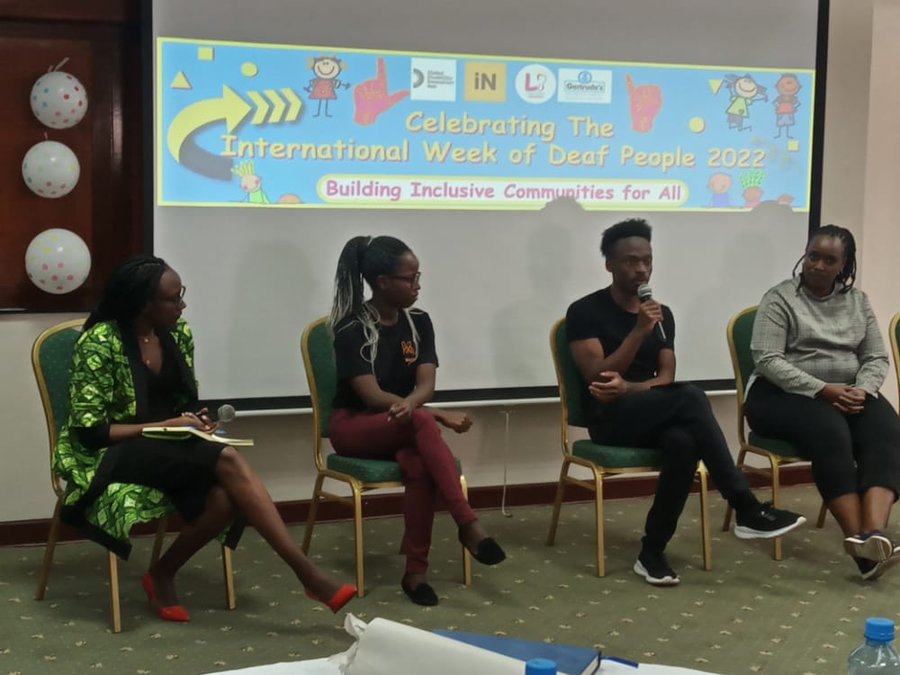
Even with the few special schools available, there are not enough skilled teachers to handle such deaf pupils. Busolo is worried about next year when her daughter is supposed to join the special primary school to continue with her education.
The young parent admits that teaching pupils with hearing impairments to adapt the sign language is not an easy task. She urges parents and teachers to work together and always share challenges for the benefit of the deaf child.
On the other hand, Busolo says there are challenges when it comes to healthcare services in public facilities. Most hospitals have no sign language interpreters either forcing parents to accompany their deaf children to hospitals or patients turned away.
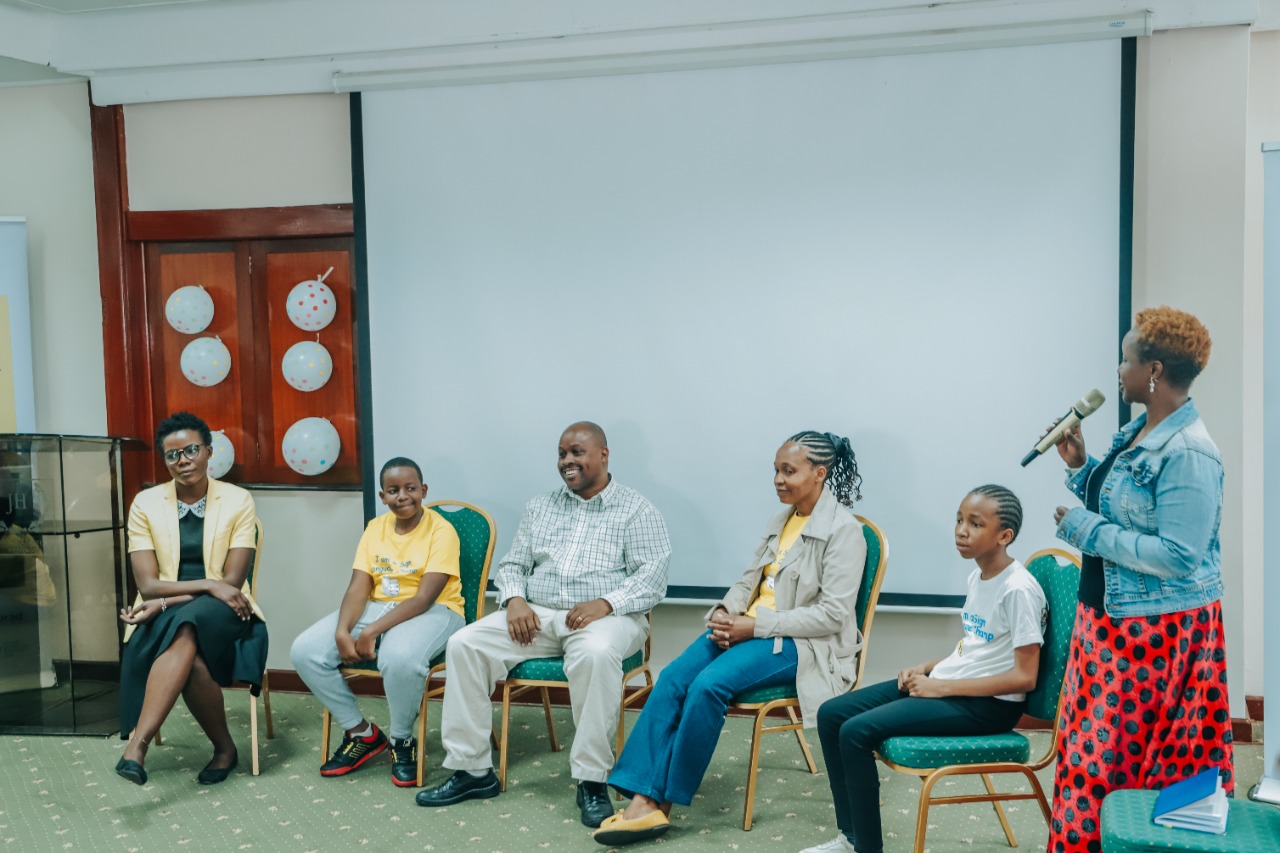
Accompanying a child means staying away from work and as a business person it is a big loss for the day. So public health facilities need to employ sign language interpreters just like in churches, and television because receiving information is a right.
Unfortunately, most doctors and nurses usually ignore deaf persons not just for being a child but even for adult patients without interpreter accompaniment. Yet it is the right of a patient whether normal or abled differently to be attended to for treatment.
Comparing matatu touts who are said to be rowdy, arrogant, and ruthless with their passengers, the parent argued that the matatu crew is more considerate when it comes to the deaf community. Matatu crews are more disciplined than doctors or nurses considering their level of education to deaf persons,” Busolo argued.
Statistics indicate that there are slightly over 200,000 deaf children with only about 10 percent schooling. While nationally, Kenya has 120 schools including 23 secondary schools for deaf learners. A few universities are trying to incorporate sign language for instance; Maseno, Moi, Kenyatta, and Embu have interpreters and deaf students enrolled.
Lawrence Kiritu is a businessman with a 13-year-old son in grade 6. His son is well acquainted with sign language and a champion for the sign language society. He says his son is outgoing and has multifaceted talents most of which he learned from the Lugha Ishara Organization.
Kiritu is urging the government to allow deaf pupils to realize their potential by training more teachers and building more special schools countrywide. He regrets that currently there are 120 schools for Deaf children nationwide.
“The few schools for the deaf are very expensive to educate a child with hearing impairment due to distance. At least every constituency should such as a school for inclusivity instead of just a selected few counties most of which are privately owned,” Kiritu complains.
Kiritu had to shift twice from his residence to accommodate his son with special needs in education at a school for Deaf children. Again, when the son was joining upper primary in grade 4, he had to relocate to another area for a nearby school offering education to Deaf pupils.
“Our children deserve education and medical incentives like any other Kenyan children. We need properly equipped special public primary and secondary schools that cater to the education needs of our children,” Kiritu emphasizes.
“I think the best thing government can do for us parents of Deaf children is to waive or exempt tax for us. This is because schools for the Deaf are few, parents spend a lot of time, money, and energy for a child to receive their basic education right,” he suggests.
Although Grace Wanjala whose child is in grade 3, aged 10 appreciated Lugha Ishara Organization for helping her daughter achieve sign language, she says a lot has to be done for Deaf children to appreciate the right education.
“I thanked God for Lugha Ishara Organization in their sign language training to my daughter and myself. We can nowadays speak using sign language and make fun in the house,” Ms. Wanjala appreciates. In fact, visitors who come into my house take time to realize it because of excitement and doing everything normally,” she adds.
According to Nancy Maina, CEO Lugha Ishara is a startup company of a community-based organization (CBO) with a mission of achieving the transformational development of Deaf children and youth through technology-based innovations. She adds that they are committed to ending language deprivation among Deaf children in society regardless of the child’s social background.
So, Lugha Ishara is an organization striving towards an end to language deprivation through early sign language exposure to Deaf children. It tackles language deprivation through early sign language exposure meaning age should not be a barrier.
“We encourage parents to bring their Deaf children to Lugha Ishara, a CBO partnering with many other organizations in areas of education, health, and general welfare of children,” Ms. Maina explains.
So, I call upon parents to join us and be part of the larger family forming one big community famous as “Lugha Ishara” meaning sign language which is envisioned as a world of Deaf inclusion,” she urges.
Ms Maina is calling upon parents with Deaf children to reach out to Lugha Ishara wherever part of the country they may be located, and the organization is ready to link them up for assistance. She emphasizes that no child should stay at home without basic education, healthcare, and play, because of their conditions.
“Being Deaf does not mean one cannot achieve full potential in their life. Inability is not the disability, so let’s empower our children to realize their dreams in life,” Ms. Maina challenges parents.
Ms. Maina made the remarks during the commemoration of the International Week of Deaf People which runs from September 19 to 25. The theme for this year (2022) is; “Building Inclusive Communities for All”.
Sheila Lutta, Senior Education Officer Department of Special Needs Directorate, Ministry of Education says sign language is to be incorporated in the new Competency Based Curriculum (CBC) hence a more accessible deaf community.
“The new curriculum is more inclusive as sign language is among selective subjects just like many others. This means it is more accessible to the wider community not just the deaf,” Lutta clarified.
In 2018, the UN General Assembly proclaimed 23 September as the International Day of Sign Languages in order to raise awareness of the importance of sign language in the full realization of the human rights of people who are deaf. The resolution acknowledged that early access to sign language is vital to the growth and development of deaf individuals.
Lugha Ishara is responding to this resolution by tackling language deprivation as one of the rights of children. It could be doing it as a charity organization yet it is a fundamental right the Kenya Government has no otherwise but to heed after becoming one of the first African countries to ratify the UNCRC in 1990.
Convention on the Rights of the Child. Adopted and opened for signature, ratification, and accession by General Assembly resolution 44/25 of 20 November 1989.
It is very true that Kenya has made significant progress in Child rights governance since it ratified the United Nations Convention on the Rights of the Child (UNCRC) in 1990 and the African Charter on the Rights and Welfare of the Child in 2001. However, concerning the Rights of Children with disabilities, there is a stalemate still wanting.
According to the National Association of the Deaf, there are close to ten Bills of Rights for Deaf and Hard of Hearing Children. For more information; https://www.nad.org/resources/education/bill-of-rights-for-deaf-and-hard-of-hearing-children/.
For instance; Deaf children are born with the same ability to acquire language as any other child and deserve the same chance to acquire language.
Deaf children have the right and the capacity to be educated, graduate high school, obtain further education, and pursue a career.
To achieve this essential goal, all families of deaf children have the right to appropriate early intervention services as well as quality family educational services. These families have the right to accurate and comprehensive information, including access to state resources to help their deaf children reach their full potential.
Deaf children can fully access education and society. This means every deaf child must have full access to all information, specialized personnel, school programs, social activities, and extra-curricular activities. Communication skills and/or modes by themselves do not equate to language proficiency.
Deaf children have the right to qualified professionals proficient in developing the child’s acquisition of language throughout the early intervention and school years. To ensure this right is fully protected, deaf children must be assessed on a regular basis by qualified language acquisition professionals. Just to mention but a few.
World Health Organization (WHO), cautions that by 2050 nearly 2.5 billion people are projected to have some degree of hearing loss and at least 700 million will require hearing rehabilitation. And, over 1 billion young adults are at risk of permanent, avoidable hearing loss due to unsafe listening practices. For more information read; https://www.who.int/news-room/fact-sheets/detail/deafness-and-hearing-loss.

